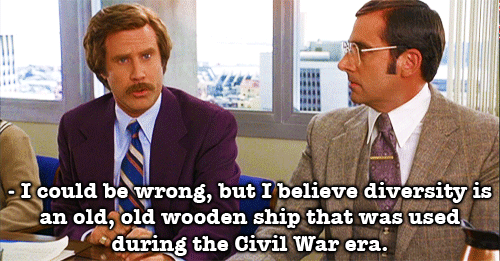“People who know little are usually great talkers, while men who know much say little.”
– Jean-Jacques Rousseau
Having faculty experts with in-depth knowledge to explain his/her thoughts elegantly on TV is a marketing coup. It’s high value brand building and it’s free. Journalists know that finding the right person is half the battle. To get someone with both depth of knowledge and the ability to communicate is a grand slam.
From my work as a TV producer and ongoing conversations with journalists here are my top 5 things a TV producer wants.
1. Subject Matter Expertise
In a world where something better is just a click away, good enough doesn’t cut it. A journalist needs an expert who knows the subject being discussed in great detail. Without this depth of knowledge it takes a lot of work to prop up the expert to make them (and the journalist) look good, and it runs the risk of turning out bad.
This is true even when the media is looking for a sound bite. Asking more questions in the hope of getting the needed quote not only takes more time, it doesn’t always work. Someone who doesn’t know the subject well will often speak too generally.
In the case of faculty experts, this is where the complaint of academic speak can come in. They are trying to be careful and reasoned, but it is hard to be direct if it’s not your area of expertise. Experts with careers to worry about are exactly the people who have the most credibility to viewers/readers and select their words carefully.
Pro Tip: Create an experts directory on your site so that Google, journalists, conference organizers and more can find your experts. Expertise Finder makes it easy.
2. Articulate
The ability to explain is an art. A ‘good talker’ is a prized interview. Good talkers can even explain things outside of their direct area of expertise. An expert who is well spoken is often preferred by a journalist than a less articulate expert with more specialized knowledge.
Combine explaining well with subject matter expertise and such a person can quickly find themselves as a go to expert.
Pro Tip: Have links to video of your experts speaking. They do not need to be media interviews, a lecture works well or even a panel discussion. They can even be very short.
Journalists want a way to quickly determine if the person is worth pursuing. Contrary to many myths, journalists are not looking for perfection but rather a filter to avoid red flags, like a person who doesn’t speak English well or someone who is incomprehensible. Media relations often make the mistake of waiting for the perfect video that never comes to be, and lose opportunities in the process.
Pro Tip: Link to existing videos of your experts talking on YouTube. If the video is long include the time when the expert is speaking. YouTube videos stay online longer as they are free to host, they have multiple ways to be shared and embedded, and you do not have to worry about legal issues because you are not hosting the video yourself.
3. Availability
Being knowledgeable and articulate is useless if the expert doesn’t make an effort to be available. It’s not that they have to be available every time and at the drop of a pin, but rather they are willing to move things around when the request warrants.
A bonus is those who see the social value in speaking to the media, putting in forward issues, and using the opportunity to be seen as a leader in their field. This extra motivation makes the job of media relations a lot easier. Organizations need to use this carrot to support marketing efforts. Asking professors to support these efforts in blunt terms doesn’t often go over well.
Pro Tip: Incentivize your experts to participate in media. Recognition from a superior in itself can go a long way, and everyone likes to know that their extra effort is appreciated. Making media interviews and writing press articles as a factor in promotion is even more powerful. The point is to tangibly value the role these experts play in your brand building.
Be found by CNN, HuffPost and more
→ Join the Expertise Finder Network of Experts ←
4. Diversity
a. Women
In Canada, women are 52% of the population, but 30% of guests on national talk shows (source). Journalists want to interview more women, but they find the best person they can within time and resource limits. The lower hanging fruit tend to be male.
Here is an example of the challenge I faced as a TV producer; women would more often be unavailable than men for childcare reasons.
Pro Tip: Have support systems in place for women to do interviews and highlight their success. Paying for taxi fare home for an evening interview is a practical measure. On average women have a larger role in childcare than their partners. An organization needs to appreciate this added barrier for doing media interviews.
b. Visible Minorities
There is pressure on the media to have coverage reflect the audience they are serving. It’s both good business and considered higher quality journalism.
As a TV producer having visible minority guests was a nice-to-have rather than a requirement. First and foremost the person needs to know what they are talking about, only after would ethnic diversity be a priority. They are competing values even if both are positive. Journalists are well aware of the under representation of visible minority groups because their audience tells them, and they would like to improve diversity.
In many organizations, especially those with public funding, statistics are kept on the diversity of guests. This is the case at the current affairs TV program on TVO where I worked.
Pro Tip: Take extra effort to ensure your faculty experts from visible minority groups are listed on experts directories. Without seeing people with similar names and faces in the media, experts from visible minority groups can get the mistaken impression that they are not what the media is looking for. These people are subject matter experts not people building media based careers. This applies to a different extent to women and those who perceive themselves to be outside of the mainstream.
5. Respond Quickly
A one line email response about availability or whether this subject is in the expert’s field of knowledge is enough for a journalist. A quick answer allows a journalist to move forward which is key to the faculty expert and for your organization to be considered media friendly.
If you can get a quick answer you are more likely to ask questions in the future. A modern experts directory is a pillar to being seen as media friendly. Experts directories are what we do exclusively at Expertise Finder.
Journalists will often reply to a quick response asking for recommendations, and the first people experts recommend are their colleagues.
Pro Tip: Don’t underestimate the value of an email that says I’m not available or I’m not the right person. When someone replies it reflects well on the institution and a journalist is more likely to go back to that institution even if they were unsuccessful that time.
Reach Out
Looking for help with any of the above? Contact me for some free advice stavros@expertisefinder.com.


